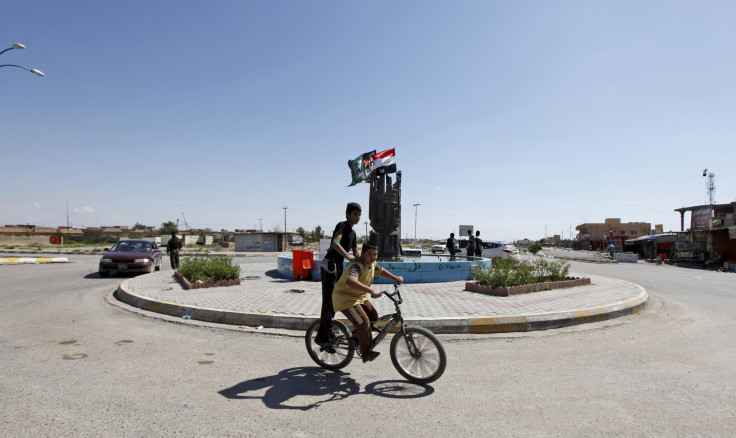Offensive To Retake Tikrit From ISIS: Iraqi Army, Shiite Militias Will Begin Battle Against Islamic State Within Hours After US Airstrikes

The Iraqi ground offensive to retake the city of Tikrit from the Islamic State group is set to begin Thursday, following the United States’ aerial bombardment over the city one day earlier, Iraqi military personnel said. It will be the largest anti-militant operation since the terrorist group declared its so-called caliphate in June, but it has been on pause for nearly a week as Iraqi leaders reassessed their military strategy.
U.S. warplanes launched airstrikes on Tikrit Wednesday afternoon at the request of the Iraqi government. This air campaign marks the first American contribution to the nearly three-week old operation and the closest the U.S. has come to cooperation with Iraq’s Shiite militias -- some of the largest forces fighting the militant group also known as ISIS -- many of which are trained, armed and funded by Iran.
When the ground battle reignites Thursday, Iraqi security forces will be fighting alongside several local militias in coordination with the U.S.-led coalition. Fighters from Iran-backed Shiite militias, the Popular Mobilization Committee, local Christian battalions and Sunni brigades will participate in the campaign to eradicate ISIS from the largely Sunni city just north of Baghdad. The Iran-backed military wing of Iraqi political party, the Badr Organization, will be among the groups fighting in the battle for Tikrit, according to sources on the ground.
The Popular Mobilization Committee is a coalition of Shiite militias with varying degrees of Iranian ties. The group’s chairman, Abu Mahdi al-Muhandis, is affiliated with both the Iranian armed forces and Kataib Hezbollah, a Shiite militia that is on the U.S. Treasury Department’s designated terrorist list “for threatening the peace and stability of Iraq and the government of Iraq.”
When the operation began March 2, roughly 30,000 forces moved toward Tikrit without support from the U.S. coalition. At least two-thirds of the forces fighting ISIS were members of Iran-backed Shiite militias, including members of Kataib Hezbollah and Asaib Ahl al-Haq, the League of the Righteous, one of the strongest Shiite militias currently in Iraq.
In the early stages of the offensive, the ground forces were “the ones who are controlled by the Iranians,” Phillip Smyth, a University of Maryland researcher who studies Lebanon and Shiite militias, recently told International Business Times. “It would seem as if there’s far more control on the Iranian side since they’re using their organizations and their groups. These groups are generally not subservient to the Iraqi state.”
A spokesman for the Badr Organization dismissed the early calls for U.S. support as coming from the army’s “weaklings.” However, just days into the operation, Iraqi forces were suffering heavy losses. Last week, the advance was paused while Iraqi forces waited for reinforcements. Iraqi Prime Minister Haider al-Abadi was accused of inadvertently handing control of his forces to Iran.
“Iraqi military officials, including the commander of the Salah ad-Din Operations Command, publicly called for coalition airstrikes to support the Tikrit operation; he said that the Ministry of Defense denied his request for political reasons,” according to a report from the Institute for the Study of War (ISW).
Earlier on Wednesday, a spokesman for Iraqi President Fouad Masum said that the U.S. and Iraq formed a committee to discuss the operation in Tikrit and that the president was expecting U.S. airstrikes at any moment, according to the New York Times. Coalition airstrikes are often the first step in an operation to clear ISIS out of a city in either Iraq or Syria.
Despite the heavy casualties earlier this month, many fighters are confident that the new strategy will be successful. Sayed Qasemi, a Popular Mobilization Committee leader in Kirkuk, told the New York Times: “We haven’t fought anywhere and lost.”
© Copyright IBTimes 2025. All rights reserved.






















